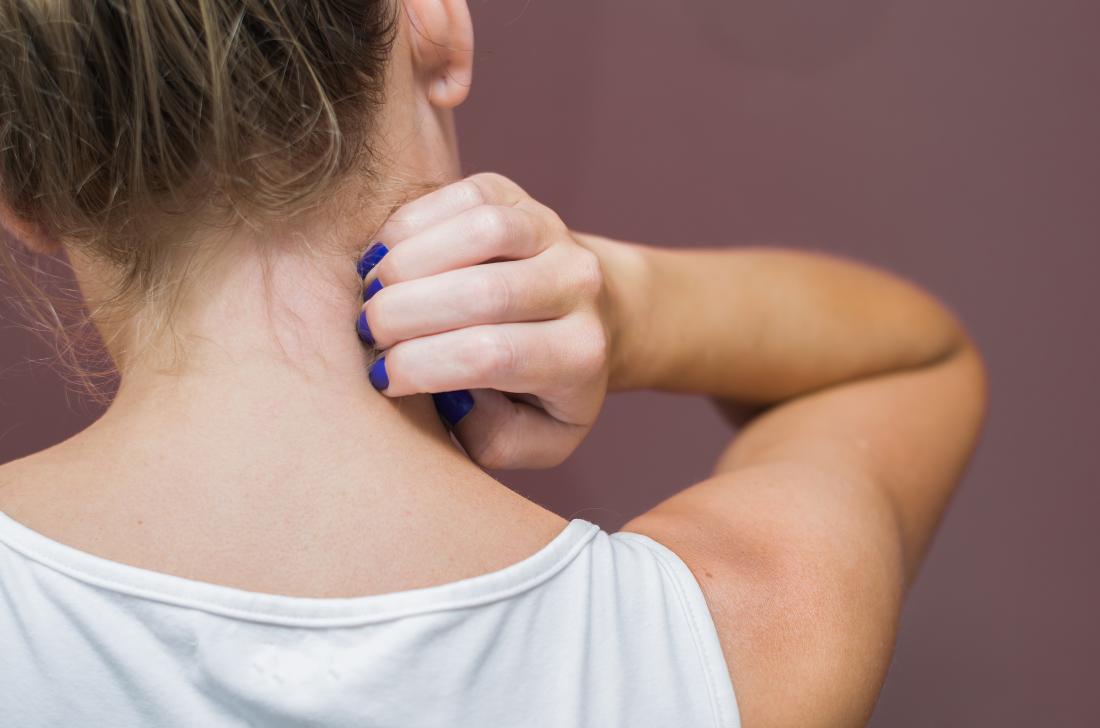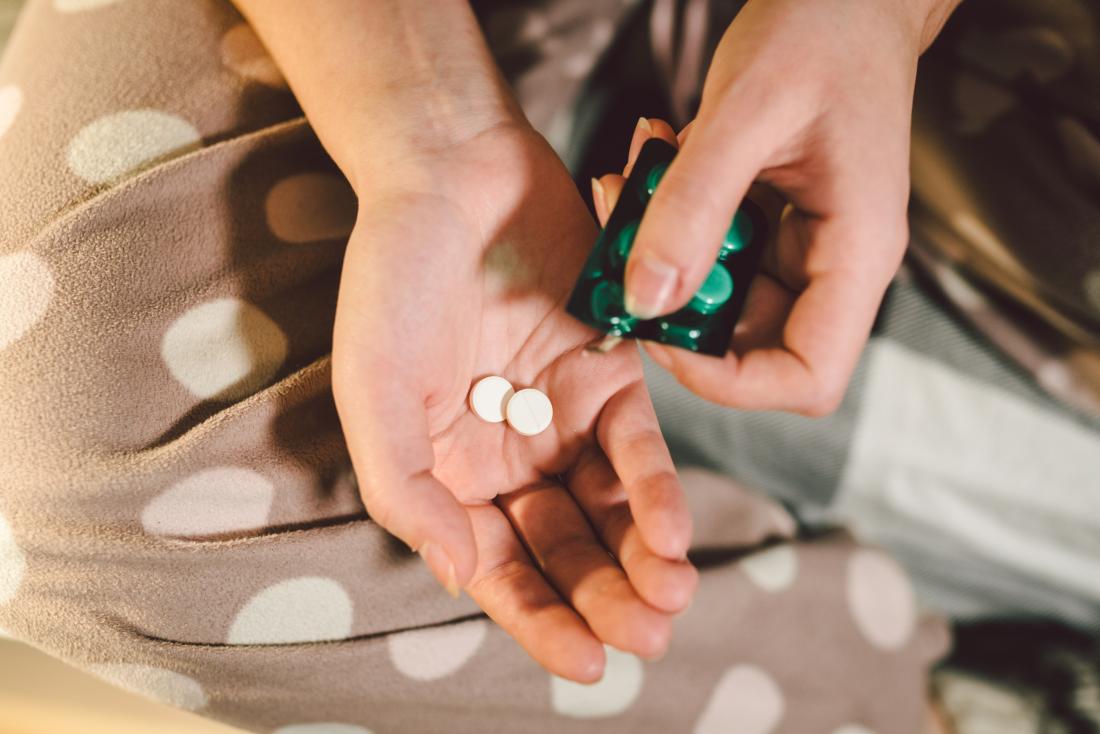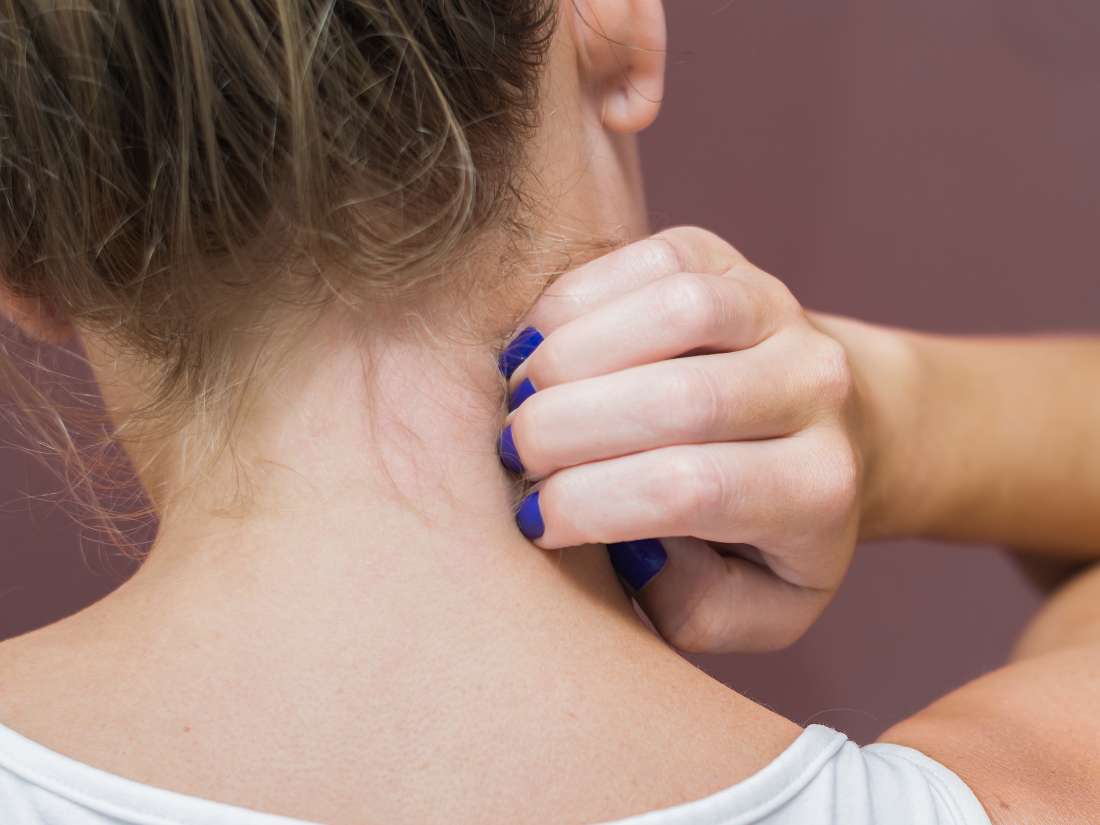Having an itchy neck can range from being very mild to extremely irritating.
Along with the itch, a person may also experience pain, warmth, or redness. The area may swell, and a rash may develop.
Home remedies may help reduce many cases of an itchy neck. Some more serious issues could also cause the itch, so it may become necessary to see a doctor.
In the sections below, we look at the potential causes of an itchy neck, as well as home remedies, medical treatments, and prevention tips. We also discuss when to see a doctor.
Causes

Poor hygiene, irritants, and allergic reactions can cause the neck to itch.
An itch may affect the neck for many reasons, ranging from mild to serious.
Causes of an itchy neck include:
Poor hygiene
Washing the neck and hair too little or too often may contribute to itchiness in the area.
Irritants
Products such as clothing, chemicals from soaps, or fragrances may irritate the skin and cause itchiness on the neck.
Allergic reactions
Some people may have an allergic reaction to certain chemicals, cosmetics, or metals that touch the skin of the neck.
Other sources of an allergic reaction include insect bites, foods, and plants such as poison oak or poison ivy.
Toxins
Sometimes, exposure to toxins in the environment may be enough to cause an itchy neck. Working with chemicals or small particles such as wood fiber may increase the risk of irritation.
Environment
Being in a very hot or very cold environment may irritate some people’s skin. Likewise, overexposure to the elements, such as too much sunlight, can also irritate the skin.
Chronic skin conditions
Sometimes, an underlying chronic skin condition may be causing the itchy neck. This may include skin conditions such as eczema or psoriasis.
Another potential skin condition that can cause itching is lichen simplex chronicus, a type of eczema that occurs from too much scratching.
Other issues
Other issues may cause itchiness in the skin of the neck, including:
Home remedies

Antihistamines may help with an itch caused by an allergic reaction.
Although many issues can cause an itchy neck, much of the time, the itch will respond well to simple treatments.
Home remedies may be more or less successful depending on the cause of the itch.
In the sections below, we cover some of these home remedies.
Do not touch the area
Avoid scratching, poking, or otherwise touching the area. Although touching the area may bring very temporary relief, the added irritation can make the itch worse in the long run.
Oatmeal
Soaking in a bath with oatmeal or applying a paste of oatmeal and water to the skin of the neck may help reduce the itch.
Baking soda
Adding baking soda to a bath or oatmeal bath may also help reduce the itch.
It is important to keep an eye out for signs of irritation, however. This is because some people’s skin is sensitive to baking soda, and it may cause irritation.
Cold wraps
Wrapping the neck in a cold towel or placing an ice pack wrapped in a towel on the neck may help people find temporary relief from itching.
People should not place an ice pack directly on the skin, however, as this may be irritating.
Antihistamines
People can use over-the-counter (OTC) drugs such as antihistamines to help reduce any allergic reaction they may be having.
Antihistamines can also cause drowsiness, which may aid sleep despite the itch.
Corticosteroid creams
Many OTC itch creams containing corticosteroids, such as hydrocortisone, may also effectively get rid of an itch.
Other ointments
OTC products containing calming or cooling ingredients may also help relieve an itch.
Such ingredients include menthol, calamine lotion, and benzocaine. However, the National Psoriasis Foundation warn that these ingredients may increase irritation and dryness.
People should try these ointments on a small patch of itchy skin first. If the ointment causes irritation, the person should not use it anywhere else on the body.
Bathe in lukewarm water
Many people take very hot showers, which can dry out the skin and increase irritation and itching. Bathing in lukewarm water may help prevent this irritation and keep the skin from drying out as much.
Use humidifiers
People who are more prone to itchiness from dry skin may find that using a humidifier at home or at work helps keep their skin moist and prevents itching.
Avoiding chemicals
Sometimes, the treatment for an itchy neck is as simple as switching out a certain product, such as a soap or shampoo.
Chemicals and fragrances in these products may irritate the skin and cause an itchy neck. Choosing gentle, hypoallergenic products instead may help clear up the itch.
Wear natural clothing
Choosing loose fitting, natural clothing options such as linen and cotton may help promote circulation in the area. Wearing tough clothing, such as wool or synthetic materials, may irritate the skin and cause itching.
Reduce stress
Although stress does not cause itching itself, the American Academy of Dermatology note that stress may make itching worse. Finding ways to reduce stress and relax may help ease the itch.
Medical remedies
Doctors may prescribe additional treatments for itching if home remedies are not strong enough or do not work.
Some medical remedies for itchy neck include:
Topical medications
Stronger versions of OTC topical medications, such as corticosteroids or antihistamines, also exist as prescriptions.
Doctors may only recommend these medications if the itch is particularly strong or if other methods do not work.
Phototherapy
Some chronic conditions require regular treatment to reduce the itch and make it manageable.
Phototherapy or light therapy may be suitable for some people, as it may reduce the sensation and help them manage their itch.
Other medications
In chronic or severe cases, doctors may recommend other medications to manage a persistent itch. This includes some immunosuppressant or antidepressant medications.
Prevention
As the National Eczema Association note, risk reduction goes a long way toward preventing an itch in the first place. They recommend preventive tips such as:
- bathing regularly
- using moisturizers often to protect the skin
- using prescriptions when necessary
- cutting the fingernails short to prevent damaging the skin
- wearing gloves at night to prevent damage while sleeping
People who have chronic conditions that cause itching may need to be very careful when it comes to preventing an itch.
When to see a doctor

A person should see a doctor if they experience fever or chills along with an itch.
Although many simple cases of itchy neck respond well to home remedies and OTC medications, there are some cases when a person should see a doctor.
Anyone experiencing troubling symptoms along with the itch should see a doctor. This includes symptoms such as:
These are not the only symptoms that require a doctor’s visit. Anyone who experiences an itch that does not disappear after using home remedies or OTC products should see a doctor.
Likewise, if the itch starts spreading to other areas of the body or is severe enough to disrupt a person’s daily life, people should see a doctor for a proper diagnosis and medical treatment.
Summary
There are many possible causes of an itchy neck. Many are simple enough to treat at home using OTC products or natural treatments. However, on some occasions, it may be necessary to see a doctor for a full diagnosis and medical treatment.
Anyone who has severe or persistent symptoms, or who continues to experience an itchy neck despite using home remedies, should see a doctor or a dermatologist.
Some of the home remedies listed in this article are available for purchase online.
We picked linked items based on the quality of products, and list the pros and cons of each to help you determine which will work best for you. We partner with some of the companies that sell these products, which means Healthline UK and our partners may receive a portion of revenues if you make a purchase using a link(s) above.
